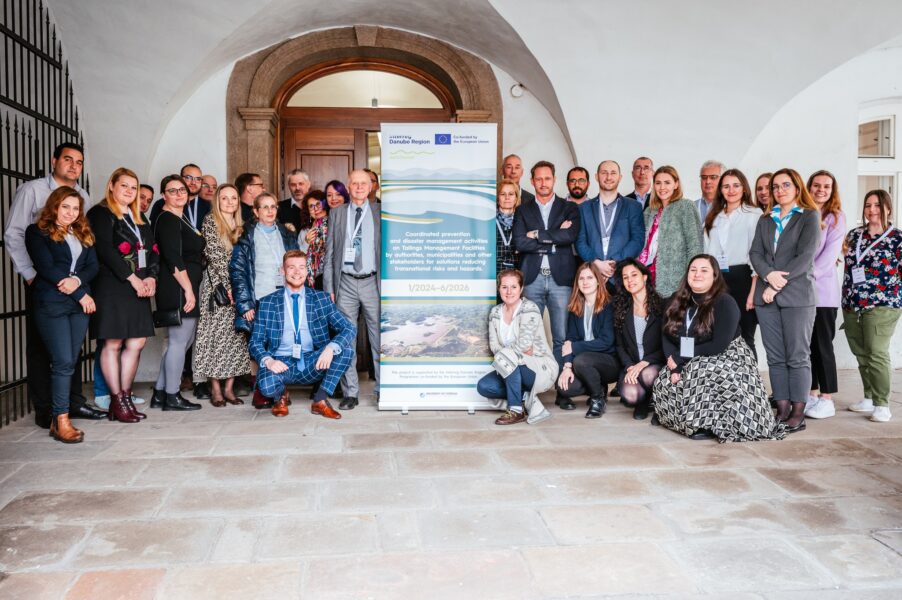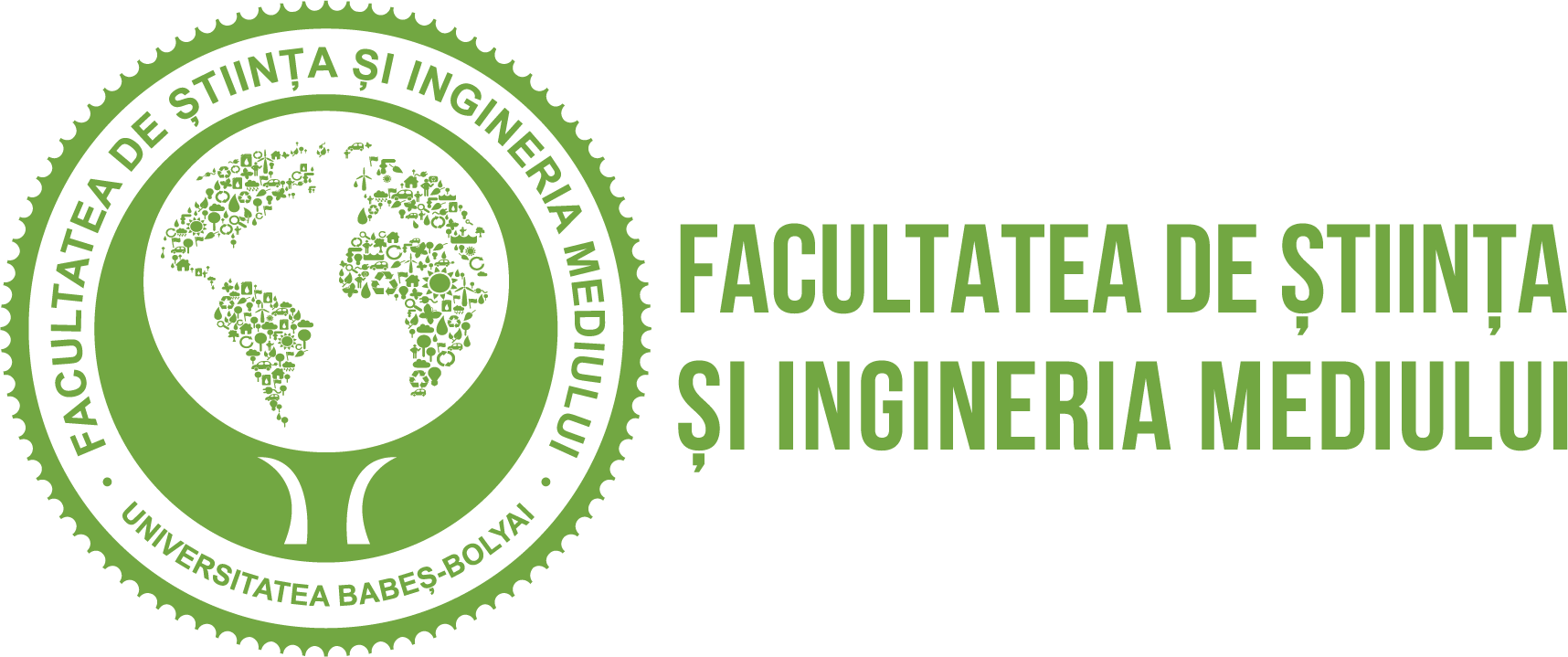
Coordinated Prevention and Disaster Management Activities on Tailings Management Facilities by Authorities, Municipalities, and Other Stakeholders for Solutions Reducing Transnational Risks and Hazards
FINANCING PROGRAM
Interreg Danube Region Programme
DURATION OF THE PROJECT
2024-2026
BUDGET:
2.351.588 EURO, 80% funded by ERDF
PROJECT MANAGER AT BABEȘ-BOLYAI:
Conf. Dr. Ing. Zoltán TÖRÖK
PROJECT PARTNERS:
- Ministry of Public Administration and Regional Development, HUNGARY
- National Association of Volunteers in the Republic of Bulgaria, BULGARIA
- Budapest Firefighter Association, HUNGARY
- Csongrád-Csanád County Directorate for Disaster Management, HUNGARY
- Harghita County Council, ROMANIA
- General Inspectorate for Emergency Situations of Ministry of Internal Affairs Republic of Moldova, MOLDOVA
- Middle Tisza District Water Directorate, HUNGARY
- University of Ostrava, CZECH REPUBLIC
- Ministry of Environment, Waters and Forests, ROMANIA
- Ministry of Environmental Protection, SERBIA
- Union of Towns and Municipalities of the Czech Republic, CZECH REPUBLIC
- Fire Association in Split Dalmatia County, CROATIA
- University of Ljubljana, SLOVENIA
- European Grouping of Territorial Cooperation Via Carpatia, SLOVAKIA
GENERAL DESCRIPTION
Mining activities generate hazardous residues, often transported by hydraulic methods, deposited and handled in Tailings Management Facilities (TMFs). The Danube River Basin (DRB) has 300+ TMFs that need special attention to avoid serious and often transnational disasters such as Baia Mare (2000, RO), or Kolontár (2010, HU).
TMF safety incorporates multi-level governance actors, multidisciplinary approach and highly complex solutions integrating all levels, actors and DRB countries. SAFETY4TMF – one of the 2022 EUSDR Flagships hosted by the Environmental Risks Priority Area, and confirmed with their Letter of Recommendation – aims to enhance the prevention, preparedness and disaster management activities of potential transnational TMF-related risks in the DRB, with special focus on optimised cooperation of multi-level governance actors, including authorities, municipalities, first responders and others.
In order to establish a solid fundament, SAFETY4TMF will analyse policies and procedures, stakeholders and cooperation practices, and map existing TMFs. Built on these, it will enhance and harmonize national and transnational capacity building, and follow a practice-oriented, targeted knowledge-exchange and co-development approach with on- and offline trainings, workshops, conferences, peer-review visits and co-working for transnational actions and applicable solutions improving TMF safety.
SAFETY4TMF generates knowledge and experience from pilot actions of transnational importance (advanced risk modelling and enhanced spatial plans; monitoring of tailing management facilities; coordination and preparedness procedures concerning TMF safety in the DRB) will feed into the policy and practice improvement at levels. The diverse partnership of ministries, municipalities, sectoral/academic actors and thematic NGOs backed by international organizations makes SAFETY4TMF capable of increasing safety of TMFs in the DRB via applicable solutions and improved, more supportive local, national and macroregional policies.
 Kick-off meeting held in Ostrava, CZECH REPUBLIC in March 2024
Kick-off meeting held in Ostrava, CZECH REPUBLIC in March 2024
SPECIFIC OBJECTIVES
- SO1: Analyzing policies, procedures, stakeholders, and cooperation practices, and mapping existing TMFs.
- SO2: Enhancing and harmonizing national and transnational capacity building through practice-oriented, targeted knowledge exchange. This includes both online and offline trainings, workshops, conferences, peer-review visits, and collaborative efforts to improve TMF safety through transnational actions and applicable solutions.
- SO3: Generating knowledge and experience from pilot actions of transnational significance, such as advanced risk modeling, enhanced spatial planning, and monitoring of tailing management facilities. This includes coordination and preparedness procedures concerning TMF safety in the DRB, contributing to policy and practice improvement at all levels.
OUR ROLE IN THE PROJECT
Babes-Bolyai University will contribute to achieving all 3 of the SAFETY4TMF project objectives.
The University will lead the activity on improving TMF-related knowledge in the Danube River Basin. With the help of all partners, Babes-Bolyai experts will compile a baseline study for TMFs that will serve as the project’s scientific foundation. TMF international inventories from the DRB region will also be updated within the project. Using this data, experts from Babes-Bolyai University will prepare an ArcGIS toolbox to create a transboundary risk map prioritizing national and cross-border risk hot spots.
The University will also lead an activity on improving capacity-building curricula for disaster management to prepare new training materials related to TMF safety for different stakeholders. In collaboration with other partners, the University will also carry out pilot activities in SK, RO, and HU related to improving TMF safety by applying advanced risk modelling and enhancing spatial plans.
In addition to the above-mentioned activities, Babes-Bolyai University will participate in varied project activities led by other partners, such as policy analysis, curricula analysis, training events, stakeholder meetings, and field exercises.
For more information please visit the projects website: interreg-danube.eu/projects/safety4tmf

